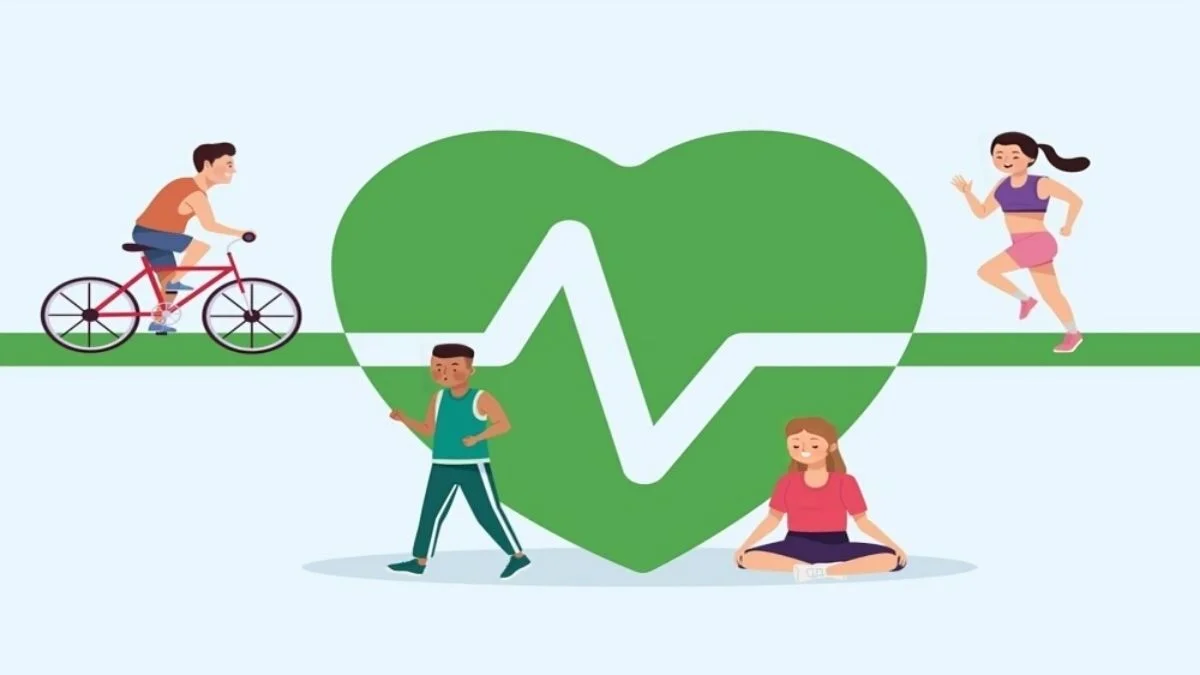EXERCISE
How Can Exercise Help You Keep Your Heart Healthy?

“Exercise should be regarded as a tribute to the heart.” —Gene Tunney
It isn’t a secret that heart health is a cause of concern in many countries in the US, with around one in every 20 adults aged 20 or over having coronary heart disease—the most common condition affecting this vital organ. The good news is that heart health is strongly lifestyle-related, meaning you can optimize it by consuming a healthy diet, staying at a healthy weight, and being physically active. Indeed, shunning the sedentary lifestyle and getting your recommended minimum of 30 minutes of moderate-intensity exercise a day (or 75 minutes of vigorous-intensity a week) can give your heart health a big boost—one that could be life-saving.
Table of Contents
The Physiological Effects of Exercise
Moderate and vigorous-intensity aerobic exercise can lower your risk for coronary heart disease—a condition in which a substance called plaque builds within your coronary arteries, narrowing them and reducing blood flow to your heart muscle. When plaque is thick enough, it can break off and cause a blood clot to form, potentially blocking flow to the heart muscle and causing a heart attack. Plaque is caused by many lifestyle factors, including obesity, high blood pressure, and high cholesterol levels. Exercise can help by reducing triglyceride levels, raising your HDL (“good cholesterol”) levels, and reducing your blood pressure and LDL (“bad cholesterol”) levels.

Strengthening Your Heart
Exercise strengthens the heart muscle, allowing it to pump blood more efficiently through the valves. It also improves blood flow and circulation, reducing the stress on valves and enhancing overall cardiac function. Even people who have undergone procedures such as a heart valve replacement operation can benefit greatly from exercise. In fact, exercise under the guidance of a cardiologist and recovery team is usually recommended once patients are stable, as exercise improves fitness and helps them manage their symptoms and return to a healthy routine. Working out regularly also promotes the expansion and flexibility of blood vessels, which improves the way they function.
Keeping Diabetes at Bay
Over 38 million people of all ages have diabetes in the US. Diabetes has its own risks and symptoms, but high blood sugar levels can also damage blood vessels in your heart, making them more likely to develop fatty deposits. The longer you have diabetes, the greater your risk of developing heart disease. Exercise helps keep diabetes at bay and helps control your blood glucose levels.
Staying at a Healthy Weight
One of the best things you can do for your heart is to stay at a healthy weight. Having high amounts of visceral fat—a type of fat that surrounds organs such as the liver, intestines, stomach, and pancreas—affects your health in many ways. For instance, it causes inflammation, which is linked to cardiovascular diseases, Type 2 diabetes, and some types of cancer. Visceral fat also affects hormonal function in your body, interferes with your body’s ability to regulate fat, and promotes insulin sensitivity—which in turn can lead to Type 2 diabetes.
If you wish to live a long and healthy life, try living by the adage that prevention is better than cure. Make smart lifestyle choices, exercising for at least half an hour a day (or 150 minutes a week). By staying active, you can stay at a healthy weight, strengthen your heart, and avoid plaque build-up. And there’s a bonus to all of this—exercise also boosts your mental health, helping to keep anxiety and depression at bay—and that’s great news when you’re trying to stay motivated to move your body daily.
-

 GENERAL1 month ago
GENERAL1 month agoChristofle – For Those Who Dream of Family Heirloom Silver
-

 GENERAL1 day ago
GENERAL1 day agoUncovering the World of кинокрадко: The Dark Side of Film Piracy
-

 GENERAL2 months ago
GENERAL2 months agoUnveiling the Art of преводсч: How Translators Bridge Language Barriers
-

 YOGA1 year ago
YOGA1 year ago4 Person Yoga Poses for Beginners






















